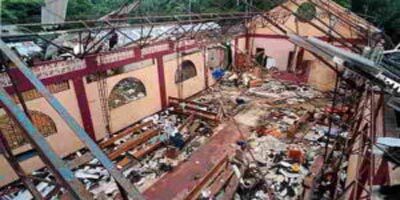Mansour Omari was arrested at the Damascus headquarters of the Syrian Center for Media and Free Expression on February 16th, 2012. Like many others, he spent almost a year in a military detention center with no official statement concerning his arrest. Omari and other detainees sought to write down the names of their co-detainees, so that their families —and the world— could know what happened. With no access to pen or paper, they wrote some eighty-six names with chicken bones and a mix of blood and rust onto little strips of cloth from their run-down T-shirts.
More than 14,000 people have been tortured to death by the Syrian regime since 2011. Seventy-two methods of torture were used, according to a 2019 report by the Syrian Network for Human Rights. The Assad regime perpetrated countless visible attacks on Syrian civilians, mass bombings, sieges, and use of chemical weapons. Still, hidden and secret, there is another layer of abuse that Assad continues to deny: mass disappearances, torture, mutilations, and executions.
Torture and murder – the evidence
Anwar Raslan, a defected Syrian colonel, and Eyad Al-Gharib, his associate, were accused of complicity in crimes against humanity by German prosecutors in 2019. Raslan directed the notoriously violent secret services unit Branch 251 in Damascus between 2011 and 2012, where more than 4,000 people were tortured, resulting in the death of dozens.
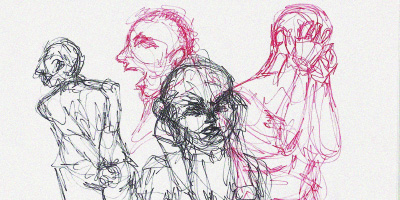
In January 2022, following a trial in Koblenz, Germany, Raslan was sentenced to life imprisonment, Al-Gharib to four and a half years. The trial marked the first step towards justice in European courts for torture survivors, although around 100,000 disappeared Syrians remain unaccounted for.
Unlike a usual trial, German authorities could not gather evidence on the crime scenes. It was made possible by evidence brought to the court by witnesses, victims, and documents collected by activists.
Omari communicated with me through email. He recently suffered from a stroke but remains dedicated to informing about human rights violations in Syria. “The Syrian regime denies any torture,” he wrote. “That’s the main reason why it is challenging to document state torture practices, especially the number of victims, and those who died. The regime does not allow international committees to visit detention sites, denies the existence of many detention facilities, especially those which are operated by intelligence services.”
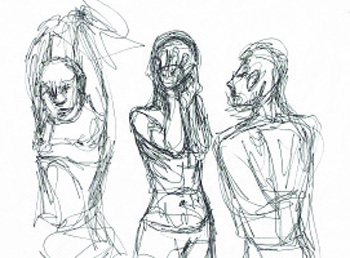
“We don’t have a torture policy in Syria,” Bashar Al-Assad said when being asked about Branch 251, the regime’s torture unit, in a 2019 interview. “What do you use torture for? That’s the question, why? You need information? We have all the information since the majority of the Syrian people support their government.”
Yet a former Syrian military photographer, known as ‘Caesar,’ fled Syria in 2013 and brought to the world some 55,000 pictures showing at least 6,627 dead Syrians. Around two-thirds died from torture between May 2011 and August 2013.
As early as 2012, Human Rights Watch documented 27 detentions facilities in the country, most of them in which witnesses described torture practices. Activists also smuggled paper evidence out of Syria; the Commission for International Justice and Accountability is in possession of over 800,000 original documents issued by the Syrian regime.
“Slow, step-by-step work”

Mazen Darwish, a Syrian human rights lawyer and free speech activist, was arrested in 2012 at the Syrian Center for Media, which he created in 2004. He was detained on terrorism charges and tortured for over three years. Darwish had already been arrested three times before and had his passport confiscated. Upon his release, Darwish and his wife fled to Lebanon and then Europe. He is now a refugee in France.
“The trial is not justice,” Darwish told me in a Zoom conversation, with resignation in his voice. “This is not the answer to the crimes in Syria, but this is a tool, an alternative tool that we have because we can’t reach the International Criminal Court and because the crimes are not in the past, they still happen daily.”
Domestic German courts can prosecute Syrian nationals on its territory based on the principle of universal jurisdiction. Torture is recognized as a crime against humanity and can thus be prosecuted by any state which ratified the Rome State of the ICC. This principle is the only option, since China and Russia vetoed a U.N. Security Council resolution that could have granted ICC jurisdiction over Syrian nationals inside and outside Syria.
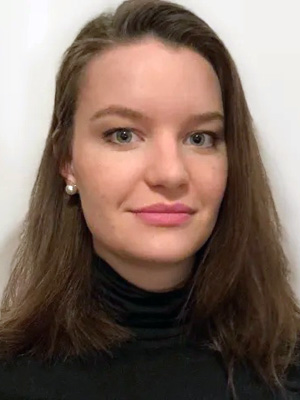
Merlina Herbach, a legal fellow at the Washington-based Syria Justice and Accountability Center, monitored and reported on the Koblenz trials. “Of course, the Syrian state itself is not prosecuting these crimes so these universal jurisdiction prosecutions and trials are filling the impunity gap,” she said.
For Herbach, the trials represented a learning experience for courts and authorities. “It’s a best-practice example of what can go wrong and what can be done better,” she said. “I think translation, accessibility and witness protection were certainly among the most prominent obstacles.”
Wolfgang Kaleck, a German civil rights attorney and secretary-general and the founder of the Berlin-based European Center for Constitutional and Human Rights, has been working on the Syrian case for over ten years. He emphasized that the trial could be a stepping stone. “I see the Koblenz cases not as unique, but somehow as pilot cases,” he said with a smile. “We hope that more will follow.”
The trials faced limitations in reaching the Syrian diaspora. “It happened during Covid so the majority could not be in the trials directly,” Darwish said. “And something very sad for us was that the court refused to record the trial, we lost the chance to have a record for new generations.”
The court found Raslan guilty of three counts of sexual violence, acknowledged as crimes against humanity. “It showed that sexual and gender-based violence are not instances that occurred here and there, but that they are an integral part of the intelligence services and Syrian government’s practices,” Herbach said.
Yet, Omari said that the trials were not efficient enough in taking the plaintiffs and victims’ mental health into consideration. “I am in close contact with several plaintiffs and direct victims of Raslan. They were devastated at some point,” he said. “I think their lawyers offered them therapy support if needed, but it was not offered by the court or the state itself.”
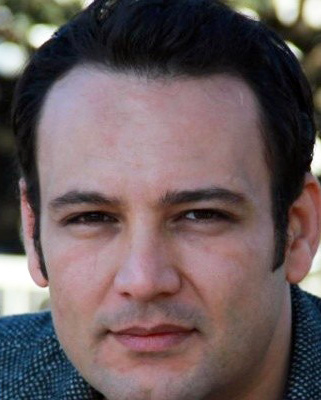
Assisting torture survivors in their rehabilitation is key to the justice process, Omari says. Too many survivors have yet to receive any kind of legal, social, psychological, or medical support. “It should also be a priority, and it is not as complicated as holding the Assad regime accountable.”
However, universal jurisdiction makes it harder for domestic courts to offer mental health support, since many witnesses and plaintiffs don’t live in Germany. “The court focuses on the security aspect,” Darwish said. “It doesn’t mean that they don’t recognize the issue, but some of the witnesses came from France, Sweden, and other countries, they come for one day only and go back, so there are some bureaucratic obstacles.”
Raslan’s sentence did not include any reparations for the victims, although that is a primary outcome expected of legal proceedings, Omari explained.
“But in Syria, there are many players: ISIS, the Turkish army, Iran, Hezbollah, we have a civil uprising, a civil war, religious conflicts, ethnic conflicts…” Darwish said. “So when we are speaking about reparations, the victims themselves could be a victim for many parties. They could be the victim in one period and the criminal in a second period.”
For Syrians there won’t be a winner
“At the beginning, a considerable part of Syrians were against the trial because Raslan was a defected officer,” Omari told me. “I myself saw many Syrians change their opinions, but there are still few voices against the trial because ‘Raslan stopped torturing people and it is more important to hold Assad accountable.’”
When Darwish started to gather evidence for a future trial in 2016, he said that, “Many Syrians believed that the regime would fall down, so why do this type of work?” Six years later, he says that it’s clear that for Syrians there won’t be a winner, and that the trials are the first step towards transitional justice and a platform to expose the crimes.
“We tried to show that it’s not about these two persons, it’s not about a personal revenge but it’s about the mentality and the methodology of the regime,” Darwish said.
Two months after the court’s verdict, in March 2022, the Syrian government passed an anti-torture law. “I guess they wouldn’t have done it without the Koblenz trials,” Kaleck said. “And we know about threats against witnesses. I’m not saying that it has an immediate effect, it has definitely not the effect we would like, but they are aware that the world is watching them.”
“We work with such a strong exile community.”
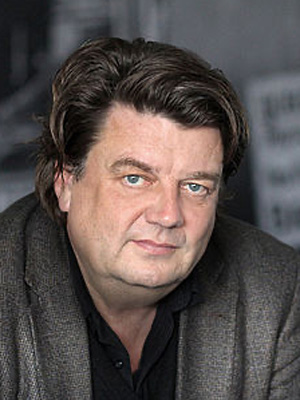
Germany today is at the forefront of the Syrian fight for accountability. “Many Syrians exiled to Germany had participated in oppositional activities and approached us, told us many stories about the repression of the Assad regime,” Kaleck said. “We have now 800,000 Syrians here in Germany, amongst them lawyers, journalists, political activists, who are all pleading for accountability. We saw that we are needed to support this community. We have to say it was a game changer to work with such a strong exile community in our own country.”
Other European countries such as France, Sweden, and the Netherlands have been involved in the prosecutions, but Kaleck hopes that European cooperation will grow stronger. In the meantime, Kaleck emphasized that Europe should overcome its double standards policies, and advocates for powerful actors such as corporations and politicians to be investigated, prosecuted, and held accountable for their participation in Syrian crimes against humanity.
“Lawyers won’t heal the world.”
“Criminal law cannot repair crimes against humanity,” Kaleck said. “We think it’s better to have criminal trials but we have to be very much aware of the limits of criminal law, I reiterate, not only in the direction of the general public but also in the direction of other NGOs who claim a historical judgment and the end of impunity in Syria.
“Now the world will be a better place? No, that’s not the point. But for more or less twenty-five years we have had an interesting, stable legal framework, which not only probates crimes against humanity and other similar crimes but also allows prosecution.”
Kaleck emphasized that criminal law should only be one of many tools for societies to overcome crimes against humanity. “Historians, sociologists who try to understand what happened, artists, writers, civil society actors who deal with the individual, but also the collective trauma,” he said. “Never, ever, we should allow lawyers in courts to present themselves as the only ones who know what happened and how to deal with what happened.”
He says that European authorities need to consider that it is the regime that is committing the arbitrary detention, torture and murder.
“Nobody should be extradited or pushed back to Syria. No refugee should be sent back to Syria. In the long run, there should be another government in Syria, and trials against those responsible for the crimes. We have many good examples of former heads of state who were put on trial while nobody thought about it five or ten years earlier. So history proves that nobody is safe from prosecution.”


